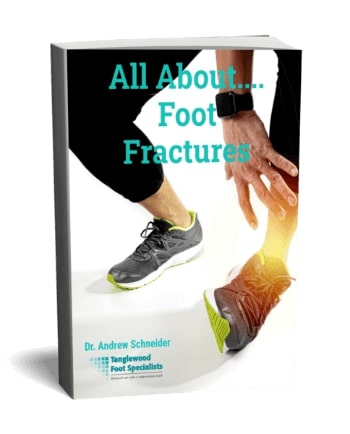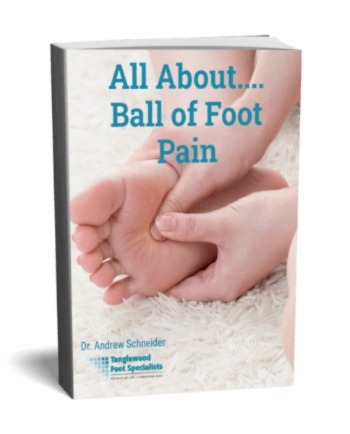
Playing sports is important to you. I get it.
- You’re a high school or college athlete and don’t want to miss any part of your season
- Your pickup basketball games are your exercise...and even your therapy
- Part of the fun of going to the beach is your volleyball games
- Your weekend soccer games are the only chance to hang out with your friends
- Heck, you may be a Pro or Semi-Pro athlete looking for more information. Welcome!
No matter what sport you love to play, it can cause foot or ankle injuries. My mission is to help you prevent these injuries, so you don't have to take time off of the sports you love. And if you do get a foot injury, I'll help you treat it quickly and minimize your time away from the game.
I commonly see foot injuries in athletes involved in:
- Basketball
- Soccer
- Tennis
- Baseball
- Football
- Gymnastics
- Dance
- Pole Vaulting (seriously!)
Not all injuries are created equal. A severe injury will require you to take time off. Others we can treat while you're still playing. No matter which type of injury you have, it's important to get it checked out early . That will give you the best chance to recover quickly and get back to playing your sport.
Common Foot and Ankle Sports Injuries
Sprained Ankle

One of the most common sports injuries is an ankle sprain. Too often athletes write a sprained ankle off as minor. I'm not sure how that started, but it's definitely not the right approach. You should take an ankle sprain seriously. Here's why...
When you twist your ankle coming down from a jump, some ligaments around the ankle joint tear. That's what a sprain is. If the ligaments are not kept in a good position while they heal, the ligaments will heal in a looser position. That can lead to ankle instability and makes it much easier to sprain your ankle again and again. That means more time away from your sport. If you develop an ankle injury, come in and get it checked and treated. It's worth your time.
Stress Fractures
Every sport puts stress on the foot and ankle. Gymnasts land their vaults. Tennis and basketball players are constantly pivoting and cutting. Dancers rely on their feet for everything. Pole vaulters have to plant their feet before taking off (I told you I was serious about pole vaulting!). The stress can weaken the bone and cause a hairline break called a stress fracture.
A stress fracture will cause pain and swelling in your foot. It's usually noticeable on a digital x-ray image. Sometimes we need to use an MRI or bone scan to diagnose it. But the important thing is that you come in and get it checked. You see, if you keep playing on a stress fracture, it can weaken the bone more. This can cause a more severe fracture which can displace. If that happens, it may need surgery to correct and will keep you away from your sport even longer.
Plantar Fasciitis
 Plantar fasciitis is the most common foot injury that I treat in my Houston podiatry practice. Plantar fasciitis starts with pain in your heel or arch when you step out of bed. Sometimes it goes away as you walk, sometimes the pain is there all day. You may have never heard of plantar fasciitis before. You'll discover that many friends, family members, and teammates have had it before.
Plantar fasciitis is the most common foot injury that I treat in my Houston podiatry practice. Plantar fasciitis starts with pain in your heel or arch when you step out of bed. Sometimes it goes away as you walk, sometimes the pain is there all day. You may have never heard of plantar fasciitis before. You'll discover that many friends, family members, and teammates have had it before.
The cause of plantar fasciitis is inflammation of the plantar fascia ligament. This common injury usually occurs where it attaches to the heel, but it can occur anywhere along the bottom of your foot. This can lead to severe pain in your heel and arch. I treat the inflammation with medication or an injection. I also support to the ligament using specialized insoles called custom orthotics. Unfortunately, most people wait too long before they come into the office. Some of my patients wait 2 years before coming in! Don't let heel and arch pain get in the way of playing the sport you love. Come into the office and together we can get you out of pain.
Achilles Tendonitis
Like plantar fasciitis, you may feel Achilles tendonitis when you first step out of bed. The pain you may feel is behind your heel and up your leg. The Achilles tendon is a very strong structure and can worsen. It's common to start to hurt you with every step you take. Let's not let it get to that point.
There are some limitations to treating the Achilles tendon. First, because of a poor blood supply to part of the tendon, we never use a cortisone injection to treat it. Doing so can lead to a rupture of the tendon which, trust me, you don't want to risk. The good news is that I am working with regenerative medicine to safely heal the tendon. This includes shockwave therapy, which has become my preferred way to treat Achilles tendonitis. It's exhausting to have pain with every step you take. It's frustrating to be injured and not be able to play your sport. I can help, but you need to take that first step.
Morton’s Neuroma
A Morton's neuroma is an enlarged, inflamed nerve in the ball of your foot. It may feel like your foot is thick underneath the ball of your foot. You may also feel electric shocks shooting into your toes. You may feel a numb sensation. These are all common when the nerve is inflamed.
A Morton's neuroma is common in court sports, such as tennis, basketball, and volleyball. This is because you spend a lot of time on the balls of your feet in these sports. I also see this in soccer players, since they often wear their shoes too narrow and too tight. This increases the pressure on the nerve and causes it to become inflamed. Treatment for a neuroma in the foot is to reduce the inflammation of the nerve. It's also important to keep the pressure off of the nerve to prevent the inflammation from returning. Like everything else I've discussed, you need to get a neuroma treated before it gets too painful. Nerves are difficult to treat, so you'll have a quicker recovery if we are able to treat it early on.
You may recognize one of these conditions as what you're suffering from. Or it may be something else. Whatever is causing your foot or ankle pain, come into the office for me to check the cause of your pain. This way you can recover faster and get back to playing your sport.
My goal is to work together with you to minimize your downtime and get you healed as quickly as possible. I will also examine your training habits to see what you can do to prevent injuries from reoccurring. And know this…I won't make you stop your training unless it is absolutely necessary. Don't delay! Relief is a phone call away! Contact us for an immediate appointment.

























